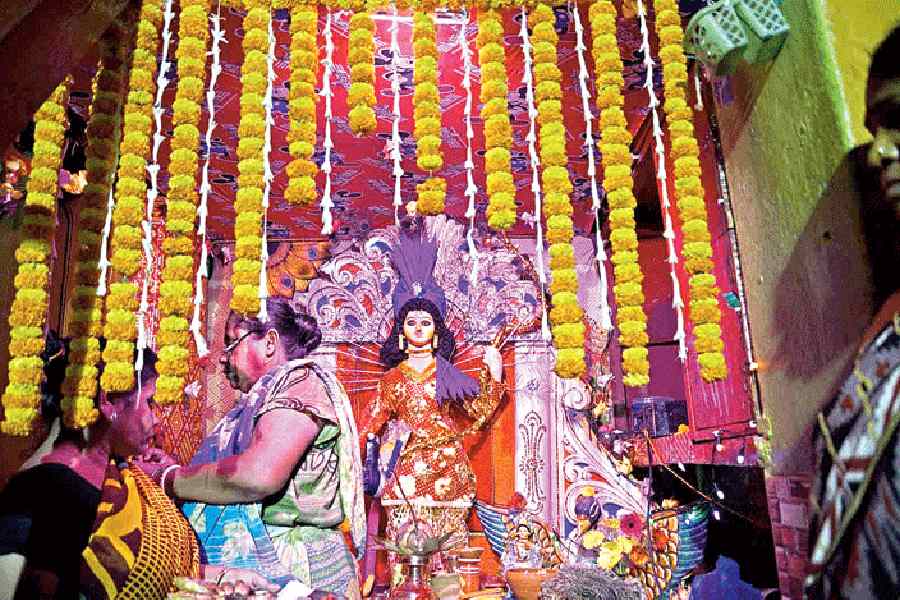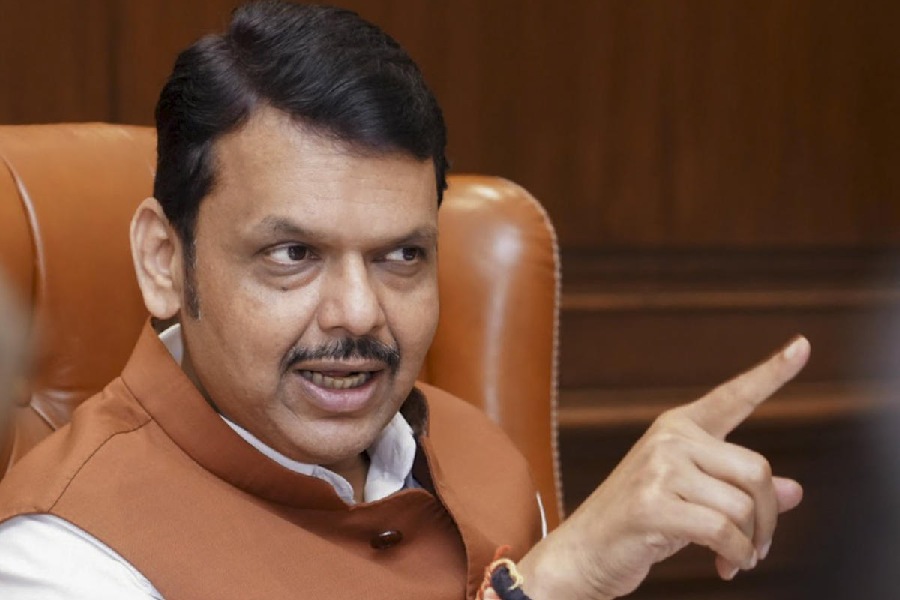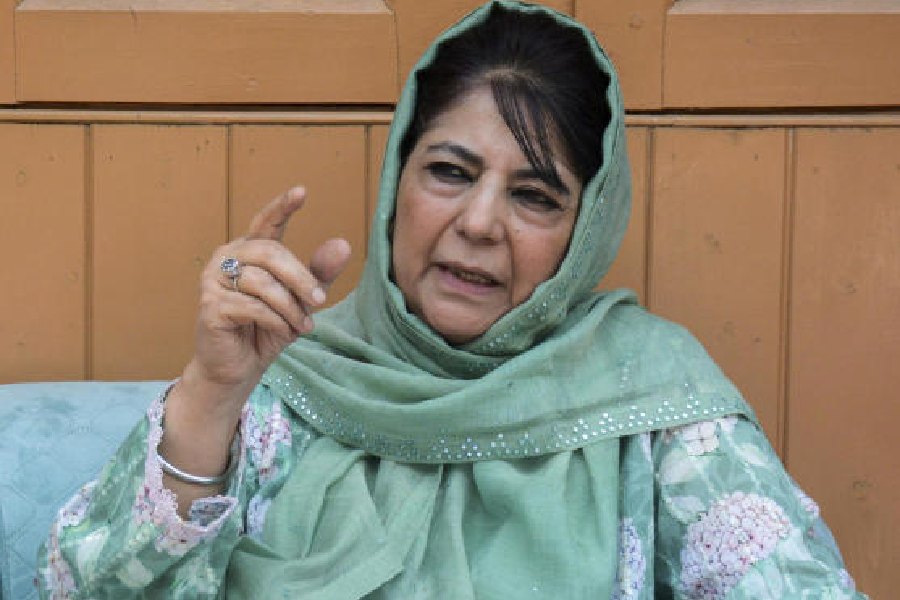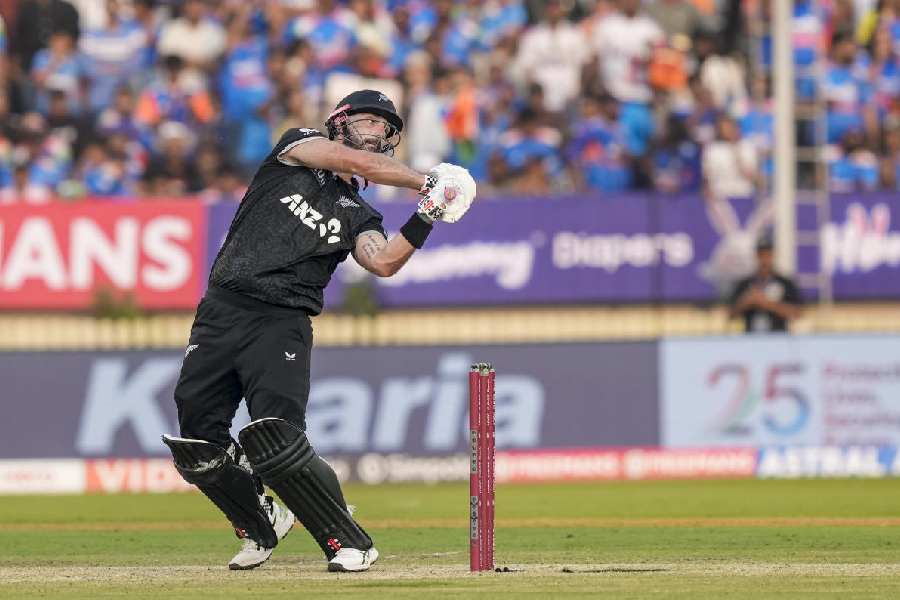Cool Kartik
Sir — Among Durga’s offspring, Kartik, arguably, has the least number of admirers in urban Bengal. Barowari pujas are rare, at least in Calcutta. Saraswati, Lakshmi and Kartik’s portly brother, Ganesha, are the eternal favourites in urban Bengali households that seem to look at Kartik only as symbol of fertility. Even though the trans people have kept the proverbial flag flying for this god in this part of the world, one has to travel all the way south of the Vindhayas to experience Kartik’s resurrection as a symbol of coolness and masculinity. Perhaps Bengali men need to emulate their Dravidian brothers and pay closer attention to Kartik; that way, they will be able to learn a thing or two from the dashing Murugan and have the rizz they are missing.
Neha Bhargav, Calcutta
Unjust verdict
Sir — The International Crimes Tribunal of Bangladesh convicted the former prime minister, Sheikh Hasina, and two senior aides, the former home minister, Asaduzzaman Khan Kamal, and the ex-inspector general of police, Chowdhury Abdullah Al-Mamun, on charges of crimes against humanity linked to the violent July 2024 demonstrations (“Tyranny death order on Hasina”, Nov 18). They have been sentenced to death. The verdict casts a long shadow on Dhaka’s streets, its political landscape, and the fragile balance of law and order. The country stands at a crossroads.
Bhagwan Thadani, Mumbai
Sir — The ICT’s sentencing of Sheikh Hasina is blatantly prejudiced (“Grey justice”, Nov 18). ICTs have historically included international judges and, in some cases, even international prosecutors. But a tribunal composed entirely of Bangladeshi judges, widely seen as partisan, meant that the odds were always stacked against Hasina. The death sentence is also a diplomatic test for India. Dhaka has formally asked for her extradition but New Delhi has shown no inclination to comply thus far. India will need to navigate this moment deftly, keeping in mind security concerns.
S.S. Paul, Nadia
Sir — A three-judge bench has convicted Sheikh Hasina of crimes including incitement, orders to kill and inaction to prevent atrocities. It remains to be seen whether the Supreme Court will overturn the verdict. Hasina has been living in exile and under protection in India. It is unfortunate that an atmosphere of political persecution still prevails in Bangladesh.
Jayanta Datta, Hooghly
Sir — Sheikh Hasina’s death sentence has plunged Bangladesh into political turmoil and created one of the most complex diplomatic challenges India has faced in recent years. Her presence on Indian soil places New Delhi in a bind. The most pragmatic path forward lies in avoiding any hasty decision, engaging Dhaka diplomatically, and seeking assurances that due process will be followed and humane treatment meted out to Hasina. This calibrated stance would allow India to protect its moral credibility, avoid destabilising South Asia, and maintain strategic influence without appearing partisan about Bangladesh’s internal conflict.
R.S. Narula, Patiala
Sir — Sheikh Hasina has rejected the charges on which she has been convicted, claiming the trial was predetermined. She claimed that the verdict came from a tribunal controlled by an unelected government. This exposes the interim government’s extremist and malicious intent. Only time will tell whether Hasina survives politically.
Dattaprasad Shirodkar, Mumbai
Sir — Sentencing a person to death without the physical presence of the accused in court by a body that has no democratic standing makes the trial illegitimate. However, the fate of Sheikh Hasina should come as a lesson for political leaders from the subcontinent. Ultimate sovereignty rests with the people, and no one is above the law.
Sadiq H. Laskar, Guwahati
Shameful slip
Sir — The disparaging statement of the BJP leader regarding Raja Ram Mohan Roy is condemnable and epitomises arrogance at its zenith (“Ram Mohan in BJP gaffe cabinet”, Nov 17). Inder Singh Parmar’s subsequent apology that it was “a slip of the tongue” is unacceptable. It is a matter of concern and shame that many BJP leaders are unaware of the cultural history of India. It is time the BJP leadership arranged history lessons for all its leaders.
M.C. Vijay Shankar, Chennai
Sir — In its latest attack on Bengali culture, the Bharatiya Janata Party has targeted Raja Ram Mohan Roy, who is considered to be the ‘Father of Indian Renaissance’ for his pivotal role in social, religious, and educational reforms in 19th-century India . The Madhya Pradesh minister in charge of higher education, Inder Singh Parmar, accused Roy of being “Angrezo ke dalal”. This gave the Trinamool Congress an opportunity to repeat the allegations that the BJP is hostile to Bengali culture.
Jahar Saha, Calcutta
Sir — The lyrics of a popular song from the 1970s go, “choron ko saare nazar aate hain chor”. This seems true of BJP leaders. Inder Singh Parmar claimed that Ram Mohan Roy divided Indian society along caste lines. He alleged that a cycle of religious conversion, fuelled by English education, was prevalent in Bengal at the time, and that the British had enslaved many Indian reformers, including Roy. The minister readily apologised for his statement. But it is no secret that it is, in fact, the BJP’s forebear and patron saint, Vinayak Damodar Savarkar, who re ceived a pension from the Bri tish. The saffron party should remember that those in glass houses should not throw stones at others, especially at a reformist figure like Roy.
Jang Bahadur Singh, Jamshedpur











